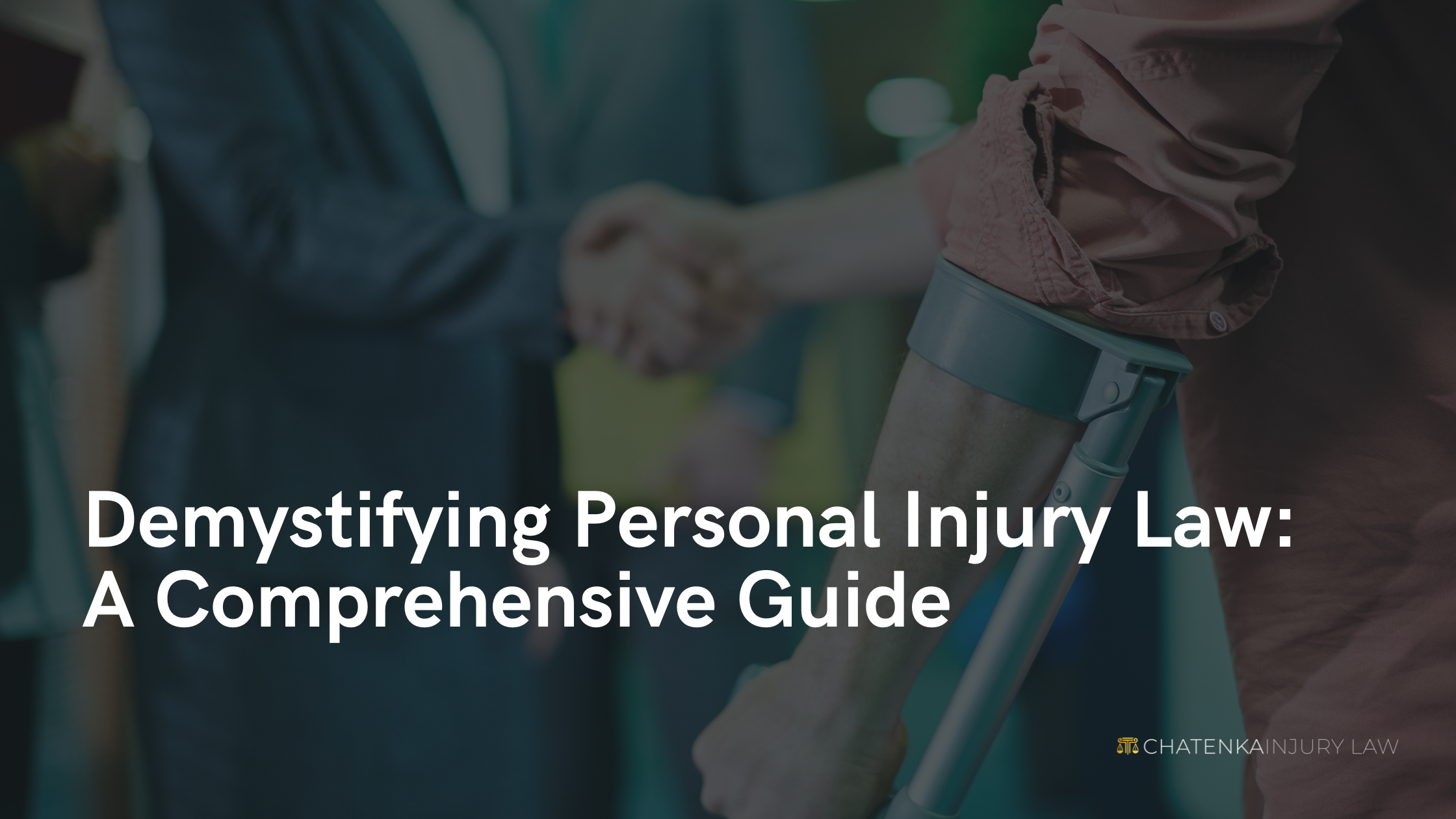Demystifying Personal Injury Law: A Comprehensive Guide
Personal injury law can often seem like a complex labyrinth of legal jargon and procedural intricacies. However, at its core, it revolves around a few fundamental principles aimed at protecting individuals who have been harmed due to the negligence or intentional actions of others. In this guide, we'll delve into the basics of personal injury law, shedding light on its key concepts and providing valuable insights for anyone seeking to understand their rights in the event of an injury.
Understanding Negligence:
At the heart of many personal injury cases lies the concept of negligence. Negligence occurs when someone fails to exercise reasonable care, resulting in harm to another person. To establish negligence in a legal context, four elements must typically be proven:
Duty of Care: The defendant owed a duty of care to the plaintiff. For instance, drivers have a duty to operate their vehicles safely and follow traffic laws.
Breach of Duty: The defendant breached this duty by failing to act with reasonable care. This breach could involve actions such as reckless driving or medical malpractice.
Causation: The defendant's breach of duty directly caused the plaintiff's injuries. There must be a clear link between the defendant's actions and the harm suffered by the plaintiff.
Damages: The plaintiff suffered actual damages, such as medical expenses, lost wages, or pain and suffering, as a result of the defendant's negligence.
Types of Personal Injury Cases:
Personal injury law encompasses a wide range of situations where one person's negligence leads to another person's injury. Some common types of personal injury cases include:
Car Accidents: Collisions on the road caused by factors like speeding, distracted driving, or drunk driving.
Slip and Fall Accidents: Injuries resulting from hazardous conditions on someone else's property, such as wet floors or uneven surfaces.
Medical Malpractice: Negligent actions or omissions by healthcare professionals that result in patient harm.
Product Liability: Injuries caused by defective or dangerous products, such as faulty medical devices or contaminated food items.
Workplace Accidents: Injuries sustained on the job due to unsafe working conditions or employer negligence.
Seeking Compensation:
In personal injury cases, the injured party (the plaintiff) may seek compensation, often referred to as damages, for their losses. Compensation can cover various economic and non-economic damages, including:
Medical expenses
Lost wages
Property damage
Pain and suffering
Emotional distress
While personal injury law may seem daunting, having a basic understanding of its principles can empower individuals to protect their rights and seek appropriate compensation when they've been wrongfully injured. If you've been injured due to someone else's negligence, consulting with a qualified personal injury attorney can provide invaluable guidance and support throughout the legal process. At Chatenka Injury Law, we're dedicated to helping injury victims navigate the complexities of the legal system and obtain the justice they deserve.


